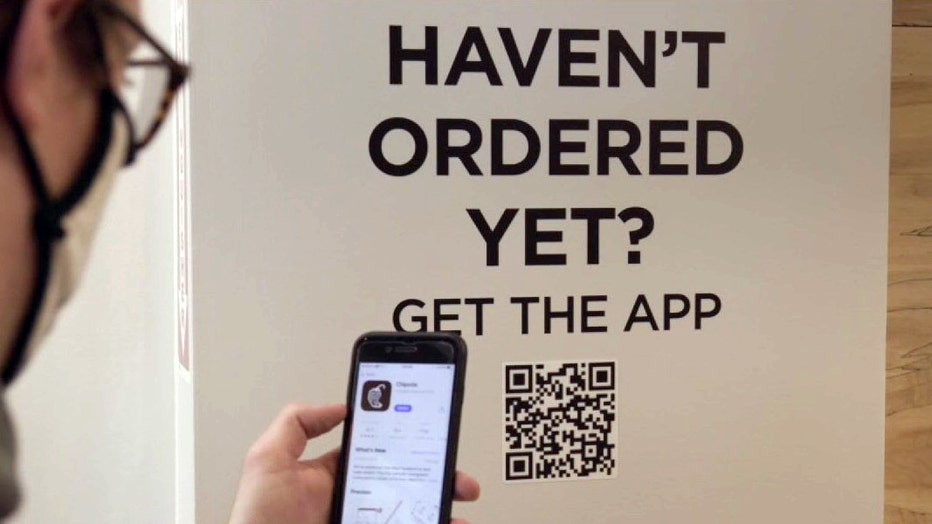Consumer alert: Scammers take advantage of QR code-comeback
TAMPA, Fla. - Since the pandemic hit, QR codes have made a comeback. You see them in restaurants to access the menu. They can be scanned to track packages or make contactless payments. Privacy experts say con artists are now using this technology to scam people.
QR stands for quick response. You scan the box-shaped code using your phone’s camera and seconds later, a link will open.
"Even though legitimate businesses are using this technology, scammers are also seeing this as an opportunity to take advantage of consumers," said Bryan Oglesby, Director of Public Relations and Outreach for the Better Business Bureau Serving West Florida.
The Better Business Bureau recently sent out a scam alert warning about fraudulent QR codes. The con artists are preying on people’s trust since the technology is being used more often.
The human eye cannot read QR codes, so scammers are disguising malicious links.
"And then you're scanning these codes, going to a link that could be asking for personal information," Oglesby said. "You do not know what that URL is that you're going to until you get there, and when you get there could be too late. It could be trying to download malware onto your cell phone."
Across the country, the BB is getting more reports of phony QR codes to the BBB Scam Tracker. The details are all a little different, but there is one thing in common, the scammers hope you scan the code without taking a closer look.

In Florida, the ploy has been used in cryptocurrency scams. One person in Lee County who applied for a part-time, remote job said: "I was instructed that a supervisor would be sending me money to convert to bitcoin. They provided a QR code for a digital wallet for my account creation at a local cryptocurrency atm. I don’t know what the next step would have been as I cut off communication…"
"So it's even more important when you're dealing with cryptocurrency. Be very wary of QR codes," said Oglesby.
Just like we know not to click links in emails and texts from unknown senders, experts say the same logic should be used for scanning QR codes.
"Do you know the company who's asking you to scan the code, and just make an informed decision and take a minute to think about what's being asked of you before you turn on that camera on your phone and scan that code," Ogelsby said.
To avoid becoming a victim, the BBB also recommends:
- If someone you know sends you a QR code, also confirm before scanning it. Whether you receive a text message from a friend or a message on social media from your workmate, contact that person directly before you scan the QR code to make sure they haven’t been hacked.
- Don’t open links from strangers. If you receive an unsolicited message from a stranger, don’t scan the QR code, even if they promise you exciting gifts or investment opportunities.
- Verify the source. If a QR code appears to come from a reputable source, it’s wise to double-check. If the correspondence appears to come from a government agency, call or visit their official website to confirm.
- Be wary of short links. If a URL-shortened link appears when you scan a QR code, understand that you can’t know where the code is directing you. It could be hiding a malicious URL.
- Watch out for advertising materials that have been tampered with. Some scammers attempt to mislead consumers by altering legitimate business ads by placing stickers or the QR code. Keep an eye out for signs of tampering.
- Install a QR scanner with added security. Some antivirus companies have QR scanner apps that check the safety of a scanned link before you open it. They can identify phishing scams, forced app downloads, and other dangerous links.
LINK:
- BBB Scam Tracker: https://www.bbb.org/scamtracker


